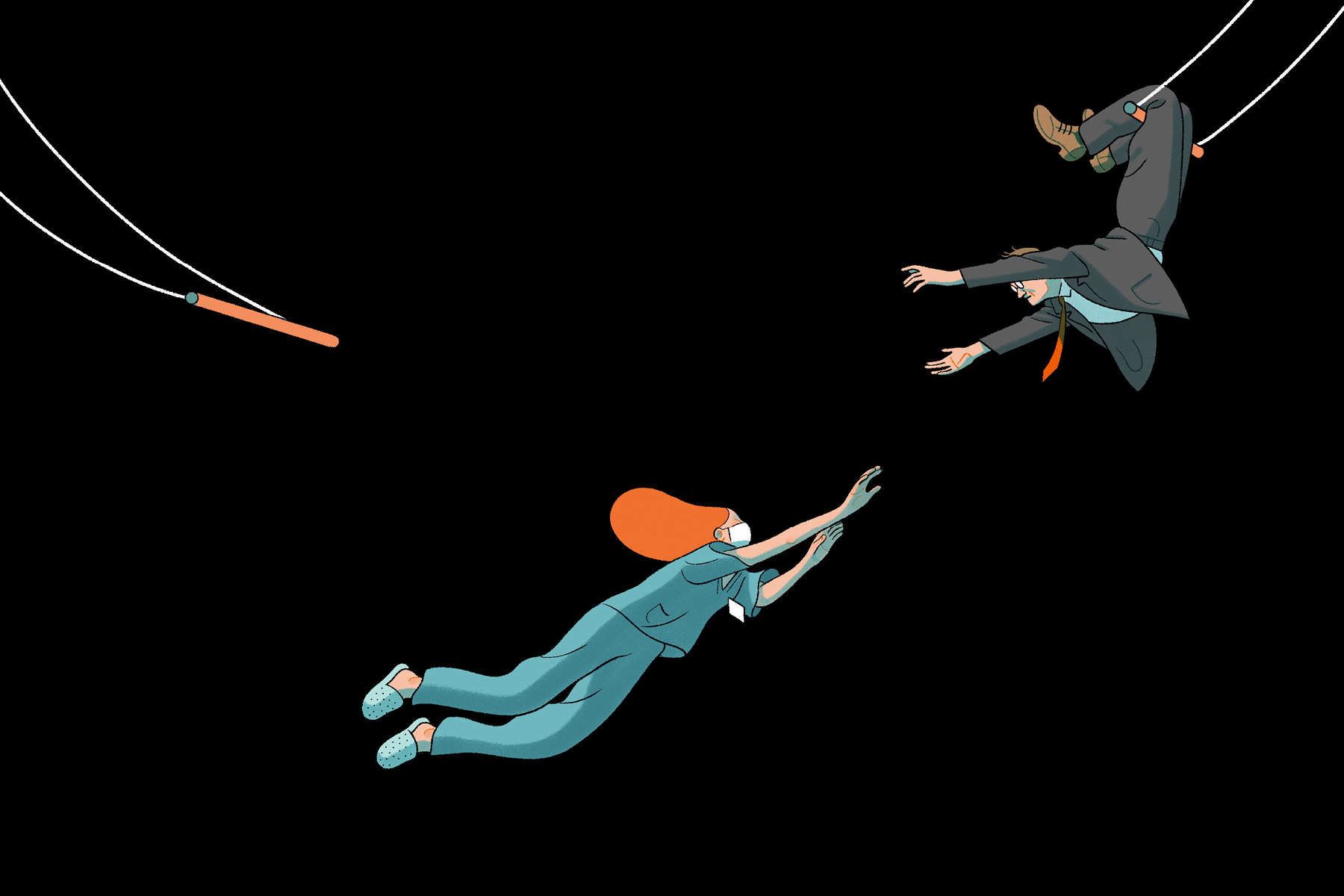
- Home |
- Search Results |
- Christie Watson: ‘Nurses need a seat at the political table’
Christie Watson: ‘Nurses need a seat at the political table’
Nurses have never been more important. In the latest in our Small Idea, Big Impact essay series, the author of The Courage to Care asks: Why aren’t there any on the government’s Scientific Advisory Group for Emergencies?
The worst night shift I ever worked began with norovirus. Nurses were dropping like flies: one projectile vomited into a clinical waste bin, another was sick into her hands. Four nurses were sent home, and two doctors. Three children crashed at the same time on intensive care, and the cardiac arrest and trauma calls kept coming, relentlessly, from A&E. A critically ill child with meningitis needed a bed. I’d been at work for 11 hours already and the trip to collect her – to stabilise her – would likely take at least another eight. There was no bed, or at least no nurses to look after patients in beds. The ward was running on such low staffing levels it simply was not safe. None of us had drank water or used the bathroom, let alone eaten, for hours.
I did what all nurses do when faced with such a shift: I asked for help from people who were used to crisis management, whose very job it is to manage the worst things imaginable. Dennis was the Site Nurse Practitioner on duty that night, in charge of every possible eventuality: security breaches, critical incidents, bed management, discharges and admissions, terrorist attacks and outbreaks of SARS or Bird Flu and major accidents (a lorry crashed into a bus full of pensioners that night on their way home from Great Yarmouth). His job was about making difficult, nuanced decisions based on both his scientific background and many years’ practical experience on the shop floor. He understood the hospital inside out, as well as the local care homes, and primary care settings feeding in and out of the hospital; he knew the staff, the particularities, the challenges.
I went on retrieval to collect the girl with meningitis and, somehow, she survived. When I returned, Dennis had separated the ward into norovirus and non-norovirus sections, organised PPE supplies, made tea, found break cover for all staff and, most importantly, conjured up available beds with appropriately qualified, safety-critical staff. Nurses save lives with this quiet yet vital choreography. They do it every day.
Yet there are no nurses on the committee for the Government’s Scientific Advisory Group for Emergencies (SAGE). I am told that this is because SAGE is made up of scientists.
Of course, nurses are scientists. Nursing is science as much as it is art; it has been since the days of Florence Nightingale, herself a statistician, government advisor and public health expert and reformer. Who is better placed than a care home nurse to understand and mitigate against the public health risks associated with COVID-19 in care homes? Who is better placed than an infection control nurse to understand PPE? Time and time again this year, we heard of "many more available beds" or "enough ventilators to meet demand", yet without critical care nurses to care for the critically ill in those beds, on those ventilators, the equipment was – and is – meaningless.
You can’t learn to be a critical care nurse overnight: it takes many years of training, of scientific training. Any critical care nurse sitting on the SAGE advisory group would have advised the government of the nature of their job, and why beds and ventilators are not enough. They’d have advised that the Nightingales, for example, will never be able to reach anywhere near capacity without critical care nurses, regardless of how many other team members are there. A critical care nurse on SAGE might have saved lives, not to mention millions of pounds: The Nightingale Hospital, where I worked the first peak, reportedly cost 220 million.
Nursing is science as much as it is art; it has been since the days of Florence Nightingale, herself a statistician, government advisor and public health expert and reformer.
SAGE provides “scientific and technical advice to support government decision-makers during emergencies”. Care home nurses are scientific and technical experts on care homes. Infection control nurses are scientific and technical experts on infection control. Critical care nurses are the scientific and technical experts on critical care. I could go on.
Nurses have never, ever been more important. It is nurses who have been at the forefront of this pandemic, saving lives, and the lack of critical care nurses has been a significant challenge; the lack of appropriate planning of PPE has been chilling; the management of care homes has been catastrophic. The SAGE advisory panel is made up of incredible humans: well-established and esteemed experts. And, of course, the government chooses whether to take their scientific advice or disregard it. But surely lives would have been saved had nurses been included on the SAGE advisory committee. Many lives.
It will be nurses, too, who bear the weight of COVID-19 long after this first, second, third peak. Nursing is a diverse cast of characters, a language of many accents – yet nurses around the country, and world, are experts in their own field. The public understand this: nurses are consistently cited as our most trusted profession. We need to examine why nurses are not considered scientific or expert enough to have a political voice in the pandemic they are at the forefront of leading.
But for now, nurses of all backgrounds need a seat at the political table. And fast.
This essay is part of penguin.co.uk's 'Small idea, big impact' series.
What did you think of this article? Let us know at editor@penguinrandomhouse.co.uk for a chance to appear in our reader’s letter page.
Illustration: Bianca Bagnarelli for Penguin